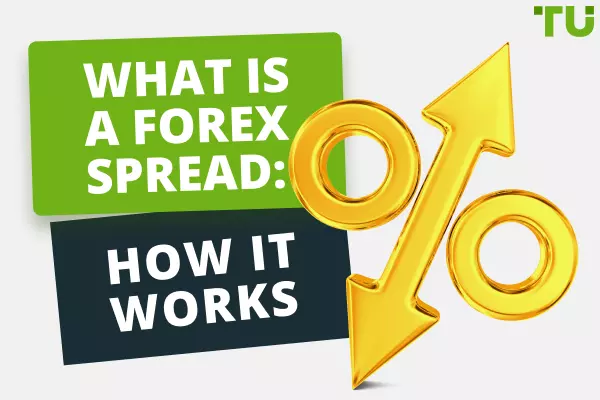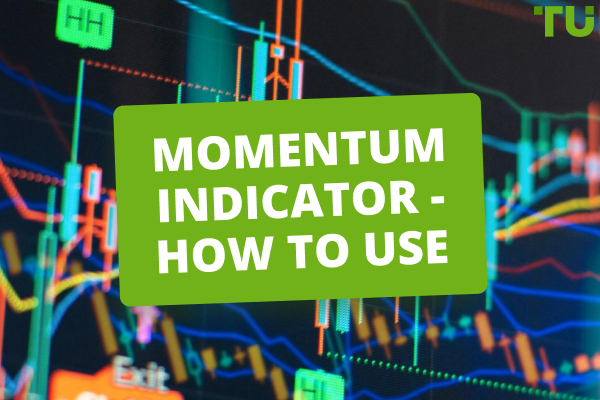What is Direct Market Access (DMA) in trading?
Forex DMA, or Direct Market Access, is a model used by Forex brokers to execute client transactions. It operates by matching client orders with prices from market makers and liquidity providers, ensuring a transparent, non-dealing desk (NDD) execution at market prices. This model provides traders with a direct and transparent connection to the market, distinct from instant execution services where brokers may decide to fill orders on their own, offering less transparency to clients.
Forex trading has evolved with technology, and one of the remarkable advancements is Direct Market Access (DMA) trading. In the world of finance, DMA offers traders a direct gateway to the liquidity of the Forex market. Unlike traditional trading through intermediaries, DMA provides immediate access to liquidity providers and exchange order books. But like any approach, it comes with its set of advantages and disadvantages. In this review of Forex Direct Market Access, the experts at TU will delve into what DMA is, how it functions, and the pros and cons it offers to traders navigating the dynamic world of foreign exchange.
What is Forex DMA?
Direct Market Access (DMA) in Forex, as the name suggests, provides traders with direct access to the electronic systems and order books of various exchanges, including the Forex market. It's a method of trading primarily used by professional traders who prefer direct interaction with the market, bypassing intermediary firms. In traditional trading, a trader's order would pass through a software platform, then to a brokerage server, and finally to the exchange's servers for execution. However, DMA trading streamlines this process, enabling traders to directly connect with exchange servers, allowing them to access the exchange's complete order book that lists buy and sell orders. This approach increases efficiency by reducing intermediaries and provides traders with a comprehensive view of market dynamics, enhancing their ability to assess transaction costs and make informed decisions.
In technical terms, direct market access is essentially an electronic trading method that lets traders interact directly with an exchange's order book. This order book is a record of buy and sell orders placed by market participants. Through DMA, traders can place orders directly into this order book, removing the need for a traditional broker to act as an intermediary. This approach empowers traders to select their desired prices when trading a wide range of financial instruments, including equities, fixed income securities, derivatives, and more. It's a way for traders to gain precise control over their trades and access various exchanges efficiently, making DMA a preferred choice for those who value direct interaction with the market.
| Parameter | ECN Forex Broker Model | STP Forex Broker Model | DMA Forex Broker Model |
|---|---|---|---|
Market Access |
Provides direct access to Interbank Forex market through an ECN trading platform. |
Offers fully automated dealing system, processing trades electronically. |
Matches client orders with dealing prices from market makers and liquidity providers. |
Dealing Desk |
No Dealing Desk (NDD) model, acting as a middleman between clients and the currency market. |
No Dealing Desk (NDD) model, often referred to as A-Book Forex brokerage. |
Non-dealing desk (NDD) execution, orders passed directly to liquidity providers. |
Pricing Source |
Pricing comes directly from the Interbank Forex market. Real-time order information and exchange rates displayed. |
Prices acquired from multiple market participants, leading to better fills and tighter spreads. |
Matches client orders with prices from market makers or liquidity providers. |
Re-Quotes |
Virtually eliminates the risk of re-quotes, making it suitable for news traders. |
No re-quotes due to automated processing, enhancing trade execution. |
Typically no re-quotes, providing more transparent trade execution. |
Commission or Spread |
Some brokers charge a flat execution fee per trade as a commission. |
Variable spreads offered to clients, potentially charging fees proportional to the trade amount. |
Variable spreads and commission charges may apply. |
Liquidity |
Liquidity sourced from the Interbank market, often resulting in tight spreads. |
Enhanced liquidity due to multiple market participants, leading to competitive prices. |
Client orders passed straight to liquidity providers, improving transparency. |
How does Forex DMA work?
Forex Direct Market Access (DMA) operates by seamlessly linking traders with liquidity providers or market makers through electronic trading platforms. These platforms offer real-time pricing data for various currency pairs and financial instruments, enabling traders to instantly place orders. The orders, in turn, are executed by the liquidity provider, who ensures they are fulfilled at the best available prices.
DMA Forex offers a notable advantage by granting traders direct access to the interbank Forex market, renowned as the largest and most liquid financial market globally. This market operates around the clock, five days a week, and boasts a staggering daily trading volume exceeding $7.5 trillion. By directly engaging with liquidity providers, traders can harness the benefits of exceptionally tight spreads and competitive pricing.
In the context of trade execution within Direct Market Access, the process unfolds as follows
-
A trader employs an online trading platform to initiate a buy order for a specific security. This order is promptly logged into an electronic trading book, and the relevant information is transmitted to the exchange servers. When the stock exchange receives the order, it can be executed once the trader's desired purchase price aligns with a seller's offering. This straightforward process empowers traders with greater control and transparency in their trading activities, making DMA a favored choice for many.
Pros and cons of Forex DMA
👍 Pros:
•Faster market access
DMA eliminates the need for a broker, enabling investors to access the market swiftly. This reduction in intermediaries translates to lower transaction costs and faster execution of trades.
•Enhanced control
With DMA, investors have direct control over their trade orders. They can make decisions and execute orders themselves, enhancing their control over the entire trading process.
•Extended trading opportunities
DMA allows investors to participate in pre-market and post-market auctions, offering extended trading opportunities beyond regular market hours.
•Enhanced privacy and security
Due to the absence of third-party vendors and anonymous trading, there is minimal risk of the investor's personal information, such as name, address, and bank account number, being exposed. When trading, the investor uses the identity of the direct market access provider, preserving their anonymity.
•High-frequency trading access
DMA grants access to high-frequency trading, an algorithmic trading technique that leverages high-frequency data and tools to execute trades at high speeds with a high turnover rate.
👎 Cons:
•Costly technology requirements
Utilizing DMA necessitates sophisticated technology infrastructure to gain direct access to stock exchanges and facilitate electronic trading. This can pose a significant financial burden on businesses seeking to maintain such infrastructure.
•Connectivity vulnerabilities
Potential issues with internet connectivity can impact DMA connections. Therefore, regular system maintenance and monitoring are essential to ensure uninterrupted functionality.
•Regulatory constraints
DMA is subject to stringent regulations aimed at ensuring proper trade execution. As a result, it may be less flexible compared to over-the-counter trading methods, limiting certain aspects of trading versatility.
Tips to keep in while trading in Forex DMA
If you are considering the use of DMA for your trading activities, make sure to keep the following expert tips in mind
Understand DMA
Prior to engaging in DMA trading, it's crucial to grasp the concept. DMA provides traders with direct access to the interbank market, allowing them to place orders with liquidity providers. Understanding how DMA works is fundamental before venturing into this trading method.
Select a reputable broker
Choosing the right broker is paramount when engaging in DMA trading. Opt for a broker with a solid reputation and a track record of offering DMA services. Consider factors such as fees, the trading platform's quality, and customer support when making your choice.
Utilize limit orders
DMA trading permits the use of limit orders, enabling traders to specify the exact price at which they wish to buy or sell a currency pair. This tactic can result in better pricing and help mitigate the risks associated with slippage.
Monitor market depth
DMA empowers traders to directly submit buy and sell orders to the underlying market's order book, bypassing intermediaries. Keeping an eye on market depth provides valuable insights into liquidity and trading activity, aiding in well-informed trading decisions.
Implement risk management
DMA trading carries inherent risks, emphasizing the importance of a well-structured trading plan and risk management strategy. Employ stop-loss and take-profit orders to effectively manage risk and safeguard your capital.
Practice with a demo account
If you're new to DMA trading, consider honing your skills with a demo account before committing real capital. This practice phase allows you to become familiar with the trading platform, refine your strategy, and gain confidence in your trading abilities.
How to start trading in Forex DMA?
To begin your Forex DMA trading journey, follow these steps
DMA account opening
Once you've identified a suitable broker, the next step involves opening a DMA account. This process entails supplying personal information and successfully completing the broker's verification requirements.
DMA activation
Some brokers may necessitate the activation of DMA within their web-based trading platform. Should this be a requirement, don't hesitate to contact the broker's customer support for guidance and support.
Funding your account
To start on DMA trading, you'll need to deposit funds into your DMA account. Multiple payment methods are typically available, including credit/debit cards, bank transfers, and e-wallets.
Currency pair selection
DMA trading centers on the trading of currency pairs. Make an informed choice regarding the currency pair you wish to trade, aligning your decision with your market analysis and trading strategy.
Order placement
Based on your trading analysis and strategy, you can initiate buy or sell orders. In DMA trading, you can take advantage of limit orders, which allow you to specify the exact price at which you intend to buy or sell a currency pair.
Trade monitoring
Keep a watchful eye on your ongoing trade, implementing risk management by setting stop-loss and take-profit orders. Additionally, remain adaptable, adjusting your trade in response to evolving market conditions and relevant news developments.
Best DMA Forex Brokers
IC Markets
| Parameter | IC Markets |
|---|---|
Fees (per lot) |
$3.50 |
Minimum deposit |
USD 200 |
Fees class |
Low |
Deposit method |
Bank / wire transfer, Paypal, credit card, Skrill, Neteller, UnionPay, Bpay, FasaPay and Poli. |
Withdrawal method |
Same as deposit methods |
Withdrawal fee |
No withdrawal fees charged by IC Markets |
Number of trading instruments |
3583+ |
Inactivity fees |
No inactivity fee charged by IC Markets |
IC Markets distinguishes itself as a reputable multi-asset broker celebrated for its exceptional trading technology, competitive pricing, and round-the-clock customer support. With robust regulation underpinning its operations, this broker serves a diverse clientele comprising over 180,000 traders hailing from more than 200 countries, highlighting its global recognition and extensive reach.
Furthermore, IC Markets caters to a broad spectrum of tradable markets, offering access to a diverse range of assets, including CFDs on indices, commodities, stocks, futures, bonds, and cryptocurrencies. Such an extensive selection empowers traders to diversify their portfolios and explore different financial instruments. The appeal of IC Markets is further accentuated by its commitment to providing tight spreads, which start from as low as 0 pips, translating into cost-effective trading opportunities. Swift order execution is another hallmark of this broker, ensuring that traders can act swiftly on market developments. To cater to the preferences of various traders, IC Markets provides access to renowned trading platforms such as MT4, MT5, and cTrader, allowing traders to choose the interface that best suits their needs and familiarity.
AvaTrade
| Parameter | AvaTrade |
|---|---|
Fees (per lot) |
$9.00 |
Minimum deposit |
$100 |
Fees class |
Low |
Deposit method |
Credit cards, wire transfer, Skrill, Perfect Money and Neteller |
Withdrawal method |
Credit cards, wire transfer, Skrill, Perfect Money and Neteller |
Withdrawal fee |
Nil |
Inactivity fees |
$50 after 3 months of inactivity |
AvaTrade, a prominent Forex and CFD broker, founded in 2006, operates under regulation in multiple countries, including Ireland, Australia, Canada, Japan, Abu Dhabi, and South Africa. AvaTrade boasts a substantial selection of over 1250 financial instruments. Moreover, they provide extensive educational content and round-the-clock multilingual customer support, catering to traders of all experience levels. In certain regions, a welcome bonus is also on the table. AvaTrade covers a wide spectrum of instruments.
Regulatory bodies overseeing AvaTrade include ASIC, CySEC, FSCA, ISA, CBol, FSA, and FRSA. The range of available platforms encompasses WebTrader, AvaTradeGO, AvaOptions, MT4, MT5, AlgoTrader, TradingCentral, and DupliTrade. A minimum deposit of $100 is required, with a minimum trade size of 0.01 lots. Leverage options include 1:30 (Retail) and 1:400 (Pro).
FAQs
What are the 4 types of Forex traders?
Forex traders can be broadly categorized into four main types
Scalpers – These traders aim to profit from small price movements, often executing multiple trades within a single day.
Day Traders – Day traders open and close positions within the same trading day, seeking to capitalize on short-term price fluctuations.
Swing Traders – Swing traders hold positions for a few days or weeks, attempting to catch price swings within a broader trend.
Position Traders – Position traders have a long-term perspective, maintaining trades for weeks, months, or even years based on fundamental analysis and macroeconomic trends.
Is Forex trading illegal in the USA?
Forex trading is legal in the United States, but it is highly regulated. The U.S. Commodity Futures Trading Commission (CFTC) and the National Futures Association (NFA) oversee Forex trading activities to ensure market integrity and protect traders. Forex brokers operating in the U.S. must adhere to strict regulations and be registered with these regulatory bodies.
Which is better, Forex or day trading?
Forex trading and day trading are not mutually exclusive; in fact, Forex trading can encompass day trading. "Day trading" simply refers to the practice of opening and closing positions within the same trading day. Therefore, you can be a day trader in the context of Forex trading, aiming to profit from short-term price movements. The choice between different trading styles, including day trading, depends on your trading goals, risk tolerance, and the time you can dedicate to trading.
Is Forex trading good for beginners?
Forex trading can be suitable for beginners, but it also carries a learning curve. To get started, it's essential for beginners to gain a solid understanding of the Forex market, trading strategies, risk management, and the trading platform. Additionally, using a demo account to practice without real money can help build necessary skills and confidence. While Forex trading offers significant profit potential, it's important for beginners to start with caution, invest time in education, and begin with a small trading capital that they can afford to lose.
Team that worked on the article
Chinmay Soni is a financial analyst with more than 5 years of experience in working with stocks, Forex, derivatives, and other assets. As a founder of a boutique research firm and an active researcher, he covers various industries and fields, providing insights backed by statistical data. He is also an educator in the field of finance and technology.
As an author for Traders Union, he contributes his deep analytical insights on various topics, taking into account various aspects.
Dr. BJ Johnson is a PhD in English Language and an editor with over 15 years of experience. He earned his degree in English Language in the U.S and the UK. In 2020, Dr. Johnson joined the Traders Union team. Since then, he has created over 100 exclusive articles and edited over 300 articles of other authors.
Mirjan Hipolito is a journalist and news editor at Traders Union. She is an expert crypto writer with five years of experience in the financial markets. Her specialties are daily market news, price predictions, and Initial Coin Offerings (ICO).












